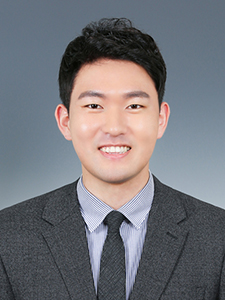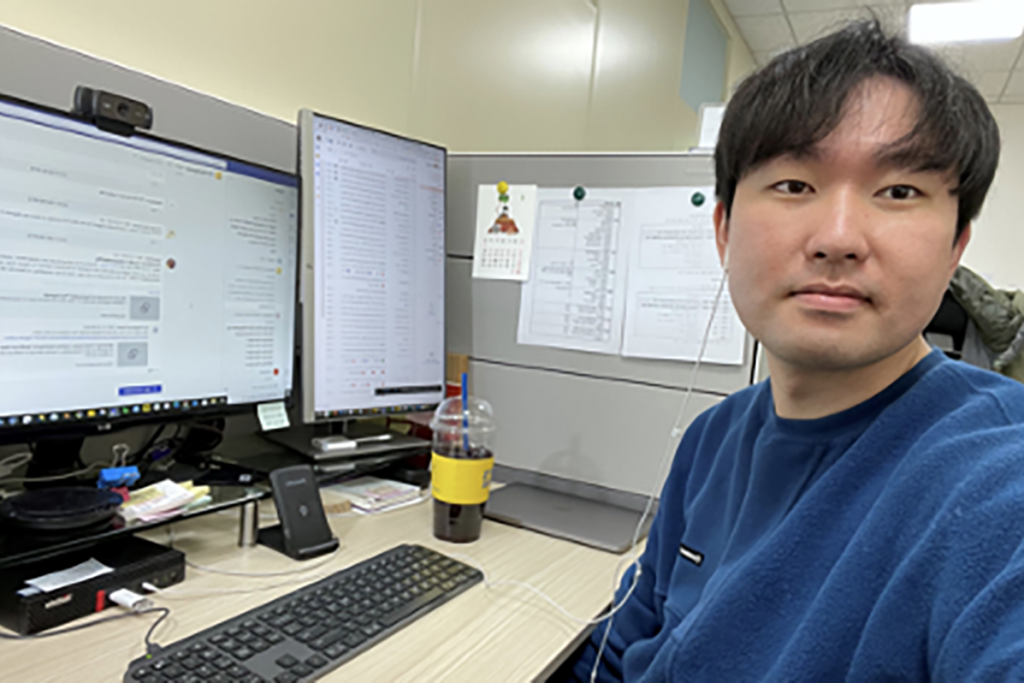- Who We Are
- Updates & News
- Standards
- Software Tools
- Network Studies
- Community Forums
- Education
- New To OHDSI?
- Community Calls
- Past Events
- Workgroups
- Tutorials
- 2025 ‘Our Journey’ Annual Report
- Current Events
- Support & Sponsorship
- 2025 Global Symposium
- 2026 Europe Symposium
- 2026 Global Symposium
- Github
- YouTube
- X/Twitter
- Newsletters
Collaborator Spotlight: Chungsoo Kim
Chungsoo Kim is a PhD candidate in the Department of Biomedical Informatics at Ajou University College of Medicine. He earned his Doctor of Pharmacy degree from the College of Pharmacy of the same university in 2019. His research interests include reliable real-world evidence for medication and prediction of individual drug effects/adverse events based on the OMOP common data models. He is also interested in data/analytics infrastructure for conducting data-driven research.
Since joining OHDSI in 2019, he has participated in and led several research projects at OHDSI. He currently participates in OHDSI working groups, including PatientLevelPrediction and the APAC group. He also served as a tutorial instructor for the 2019 OHDSI Korea International Symposium.
Chungsoo discusses his research focuses, his involvement in the OHDSI community, the growth of OHDSI around the Asia-Pacific region, and plenty more in the latest Collaborator Spotlight.

Can you discuss your research focuses at Ajou University?
The goal of my journey is to achieve patients’ better health through data-driven research. My research interest is broadly focusing on generating reliable real-world evidence, especially on medication. I’m interested in utilizing as much data and as many various methodologies as possible to produce results that ultimately benefit patients. All research I conducted is done using the OMOP CDM.
I conduct epidemiological studies on various diseases to generate real-world evidence. I also develop predictive models using informatics techniques to support optimized drug selection for patients. I am also interested in creating a data ecosystem by data standardization and building analysis infrastructure.
How did you first become acquainted with the OHDSI community, and what has inspired you to stay active in the community?
Our department (Ajou University BioMedical Informatics, ABMI) coordinates the Korea chapter of OHDSI under the leadership of Prof. Rae Woong Park. I was influenced by Prof. Rae Woong Park and Prof. Seng Chan You, who is now at Yonsei University, to get involved in the OHDSI community.
I was shocked when I first heard about OHDSI. As an undergraduate researcher, I was conducting research analyses on cardiovascular drugs in Pharmacy school and was always skeptical about my research. How could other people validate my analysis for unintentional errors? Could my analyses really be trusted by other researchers? After hearing about OHDSI’s mission and approach at our lab, I realized that evidence from OHDSI’s common data model and standardized methodology can enhance our reliability for observational studies.
The other thing that’s important is the power of a community. We are like a global family. I am always learning and growing in the OHDSI community. Our community strives to achieve common goals, and we tolerate mistakes and discipline ourselves to get on the right track. In the process, we grow together and gain a global network. These features of the community strongly drew me and made me stay in OHDSI.
 How has OHDSI impacted your research as a student, and has it opened more doors than you might have expected?
How has OHDSI impacted your research as a student, and has it opened more doors than you might have expected?
Through OHDSI, your research can be extended, pre-validated, and persuasive to your peers. As a student, all of this is not easy – OHDSI holds you to a high standard and challenges you.
Do you want to perform comparative effectiveness research? The community will make suggestions for you. How about a large-scale propensity score model using negative controls? If you want to develop a predictive model, people would say, Do you know the PLP framework? How about external validation? What about deep learning?
With this course, your research will be on its way to the highest quality, which will increase the quality of your research and increase its social impact. I think this course will definitely help you to be a responsible researcher. You are able to stand on the shoulders of giants through OHDSI.
As a junior researcher, what are some of the first steps you can take to start making an impact in the community?
What I always convey to any first-time researchers is that even if you’re new, articulate a small question (it doesn’t have to be trendy) as a research topic and try it first. I want you to start analyzing your research right away, rather than crack open a 300-page R book and memorize every function from start to finish. Just get started. You will learn a lot along the way.
You should also not be afraid to share and ask for help in the community. One clever trick is to ask a colleague with experience right away, join a working group, or ask in a community forum. (I know this is not common in some cultures.) I remember developing a predictive model for my first study and sending a mail to Jenna to join as a data partner. As it turned out, we were able to validate the model using Korean and US data, and I was able to publish it. I gained a lot from this process: knowledge of external validation, access to US data, and networking with experts.
If you knock, it should be open to you.
There has been great excitement around the progression of OHDSI in the Asia-Pacific region. You have been in the community for several years, so what is exciting you the most about OHDSI’s growth around you?
OHDSI is a living community. Especially in recent years, the APAC region has been growing rapidly. The efforts and passion of Mui Van Zandt and the APAC leaders for OHDSI are truly exciting. I can’t imagine how difficult it is first step to initiate the national chapter. APAC is growing, and we have held OHDSI symposiums in Taiwan and Australia. It is scheduled for Singapore next year. I am also amazed by the enthusiasm of the newly joined India chapters and future new chapters.
Second, I am always excited about young researchers growing together. As a data partner conducting COVID-19 research, I interacted with graduate students/researchers conducting research analysis in other countries such as the United States and Europe. We were at similar time points in our lives and were able to discover each other’s growth at each conference. It has been amazing for us to grow together as colleagues and within the same community.
OHDSI collaboration has spread to 83 countries across six continents. How valuable is it for you to have not only data sources but collaborator opportunities from different regions around the world as you are building your research career?
Joining the OHDSI community makes your career international. When I first entered graduate school, I had no idea that I would be able to make global research colleagues so quickly. Many Koreans are unfamiliar with and lack confidence in English (even though they have plenty of potential). In this community, you can learn about how countries around the world conduct research. Now I can develop my career on a global stage.
What are some of your hobbies, and what is one interesting thing that most community members might not know about you?
I like to travel domestically or internationally. So far I have traveled to the US (more than 5 times), China (3 times), the UK (2 times), France, Japan, and Taiwan. My next targets include Spain, Germany, Singapore, and more!
Also I started playing golf a years ago and enjoy some rounds with family and friends. When I’m tired of coding or manuscripts, if I shift my focus to my swing for a moment, the stress goes away. Of course, during the new round, new stress arises from the small golf.
